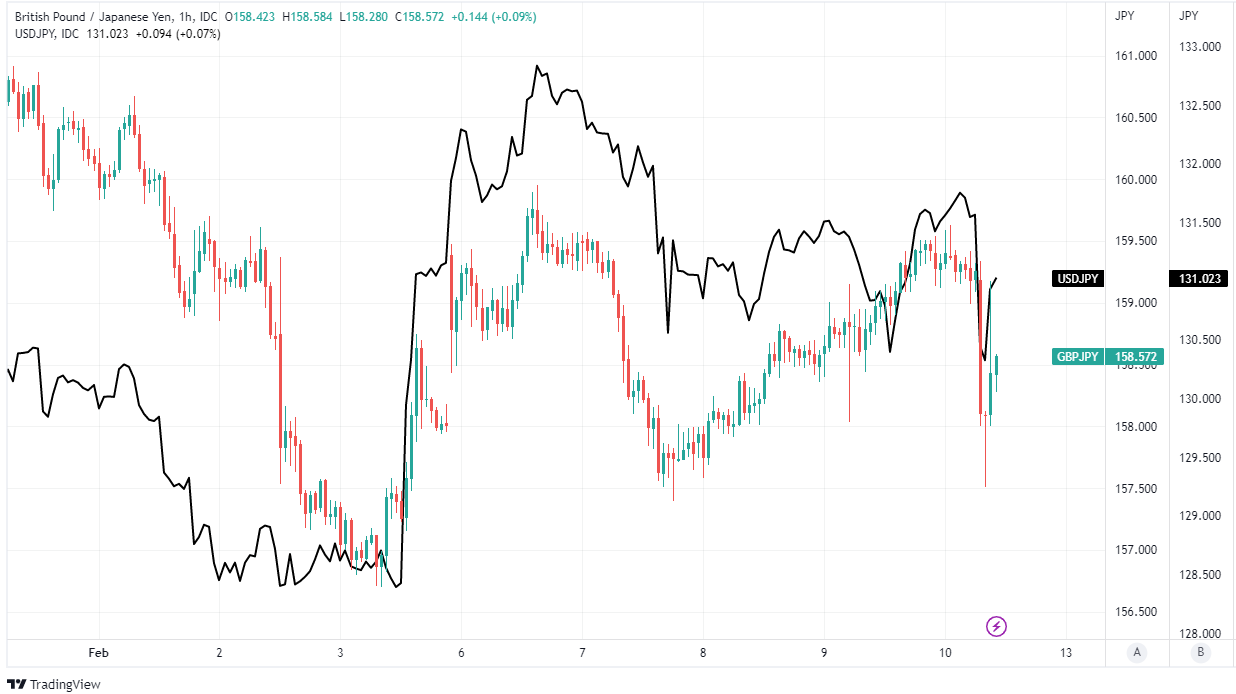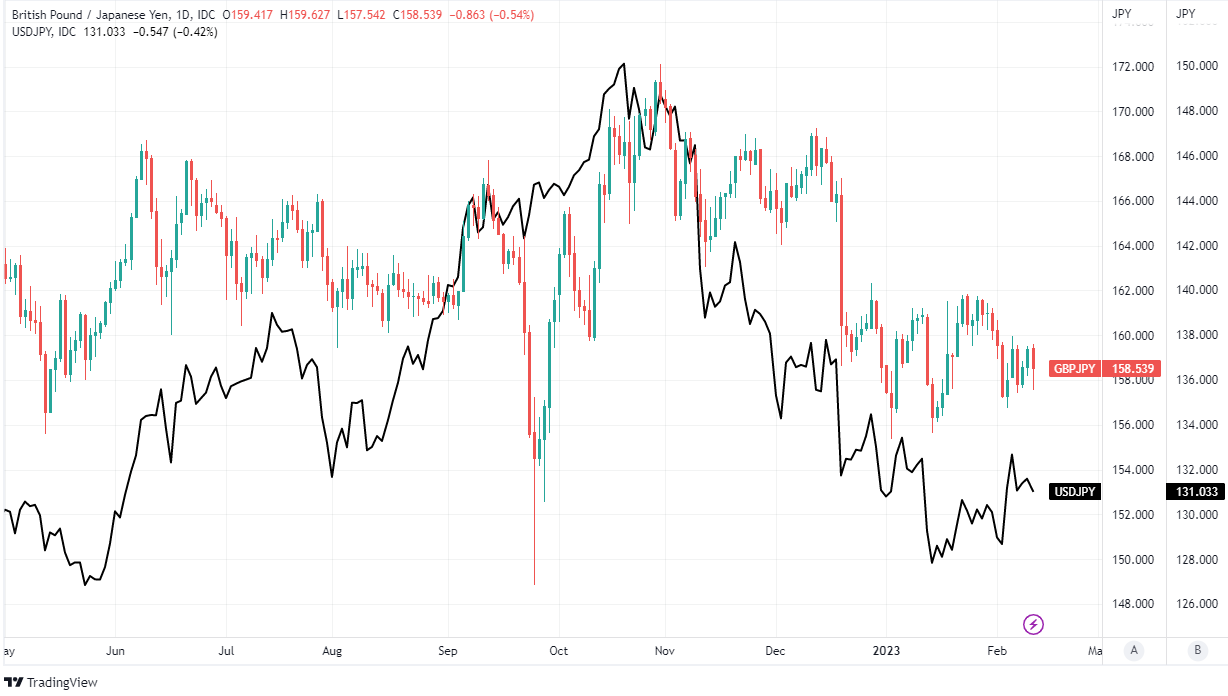Japanese Yen Rallying but Banana Skins Sit Further Along Path Ahead
- Written by: James Skinner
"Jin Kenzaki believes not much will change in the short-term" - Societe Generale.

Image © Leonid Andronov, Adobe Stock
The Japanese Yen rallied ahead of the weekend amid speculation about who might lead the Bank of Japan (BoJ) from April but regardless of the candidate who is or isn't eventually chosen there are banana skins littering the path ahead, which could ultimately limit how far the currency is able to rally.
Japanese exchange rates were higher across the G10 board on Friday while the Yen also rallied against all other G20 counterparts with the sole exception being the Russian Rouble following a NIKKEI report suggesting former BoJ board member Kazuo Ueda could be the bank's next governor.
"We would characterise the initial kneejerk lower in USD/JPY as reflecting the appointment not being Amamiya, rather than specific to Ueda," says Adam Cole, chief FX strategist at RBC Capital Markets.
"During his stint of the BoJ board in the early-2000s, Ueda was a pragmatic and “real world” economist and is not easily pigeonholed as hawkish or dovish," Cole writes in a Friday research briefing after noting that RBC.
Previously, speculation was that Tokyo's pick would be Masayoshi Amamiya, who was widely perceived by financial market analysts as being least likely to pursue a normalisation of BoJ monetary policy in the near future.
NIKKEI reported on Friday that Amamiya was approached about taking on the role but responded with a "firm refusal."
 Above: GBP/JPY shown at hourly intervals alongside USD/JPY. Click image for closer inspection.
Above: GBP/JPY shown at hourly intervals alongside USD/JPY. Click image for closer inspection.
Earlier reports suggesting Amamiya was in the running for the top job were followed by losses for Japanese exchange rates.
Financial markets have used, perhaps mistakenly, what is known about past legacy policy positions of candidates to infer how they might be likely to handle the task of normalising Bank of Japan interest rates and bond market policies if and when that eventually becomes necessary.
"In the 1980s, Ueda became famous as a mediator in the seemingly never-ending controversy between economists over the control of money supply by central banks. His view of the matter is, in a sense, balanced. In the short term, central banks cannot maintain control over money supply, he argues, but in the long term, central banks could affect it," says Shigesaburo Okumura, Nikkei Asia Editor-in-Chief.
"This balanced view might, however, be something of a double-edged sword. Compared with current governor Kuroda, who, since he took office 10 years ago, has always been stubbornly and decisively ultra-dovish, Ueda may look a little too flexible. On the other hand, his balanced outlook and academic background could help him as a chair of the policy board," Okumura writes in a Friday newsletter.
Significant risks abound for central banks as they extricate themselves and their economies from a low interest rate mire that has prevailed for much of the time since the 2008 financial crisis, although this is especially true of Japan, given low interest rate policies have prevailed there for even longer.
"Our economist Jin Kenzaki believes not much will change in the short-term. He sees 45% probability that the BoJ maintains the existing YCC [Yield Curve Control] framework," says Kenneth Broux, a strategist at Societe Generale.
 Above: GBP/JPY shown at daily intervals alongside USD/JPY. Click image for closer inspection. To optimise the timing of international payments you could consider setting a free FX rate alert here.
Above: GBP/JPY shown at daily intervals alongside USD/JPY. Click image for closer inspection. To optimise the timing of international payments you could consider setting a free FX rate alert here.
"There is a 45% probability that the BoJ widens the range on 10y yields by 25bp to ±0.75%. Ueda in a local media article last year warned against a premature rate increase after the previous failure to raise rates in the past," he adds.
Japan's battle against low inflation has involved the use of ever lower borrowing costs and been ongoing for a more-than three decade period in which tidal waves of annual savings and other capital have left the world's third largest economy in search of better returns elsewhere.
Some of that capital might be drawn out of its adopted native and back home in the event of any policy normalisation at the BoJ, posing significant upside risk for the Yen, hence why financial markets are so quick to bid the Japanese Yen higher in response to speculation on the subject.
But the extent to which Japan's economy has become accustomed to, if not built upon, low interest rates is one important reason for why a policy normalisation could only be undertaken slowly and with a high level of caution.
That is in turn just one of the numerous banana skins sitting further out along the path ahead of the Japanese Yen.
"We are core JPY bearish anyway and that view has not changed on today’s unofficial announcement of Ueda as BoJ Governor," RBC's Cole said Friday.
